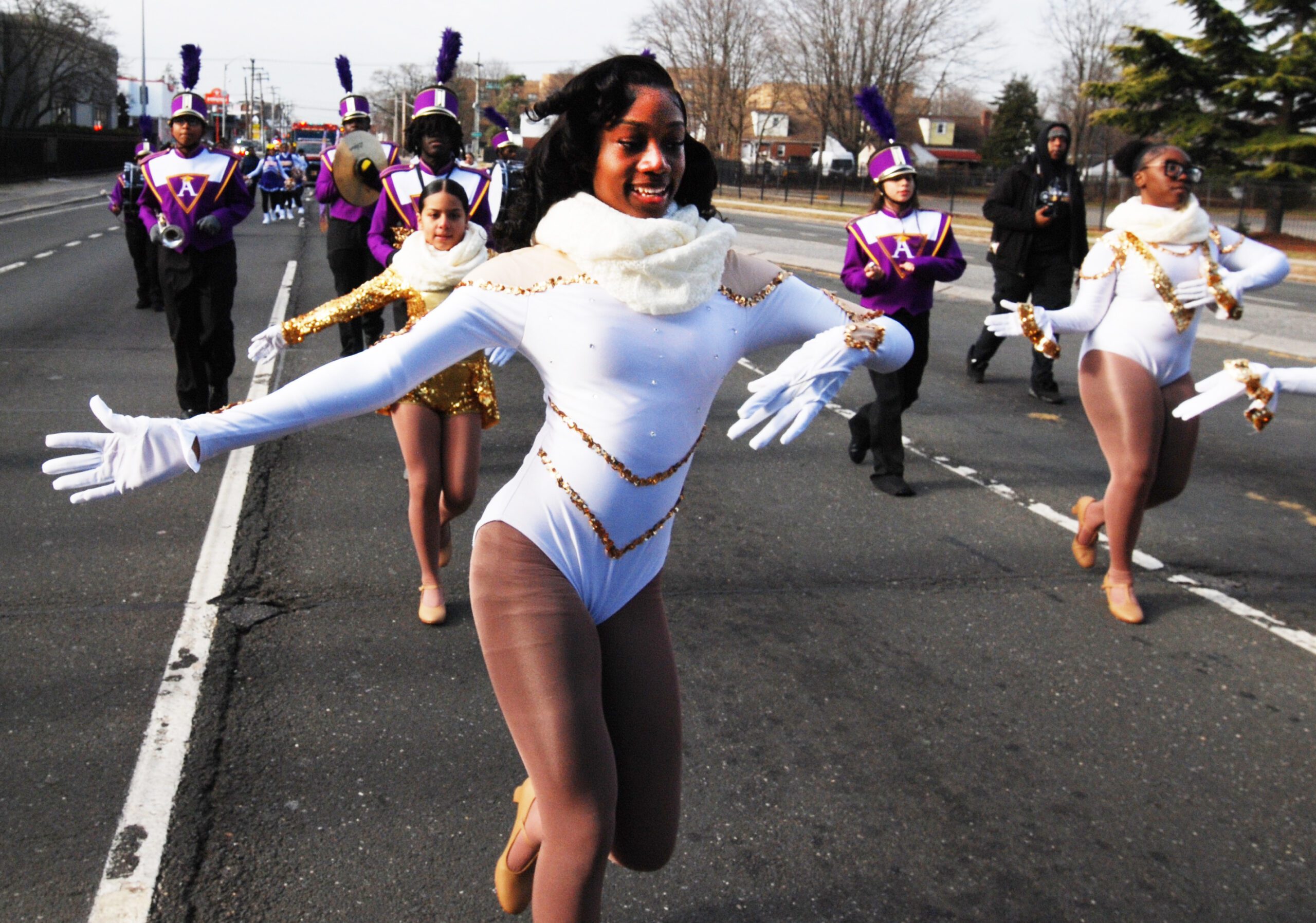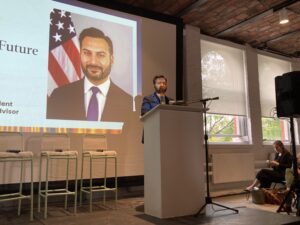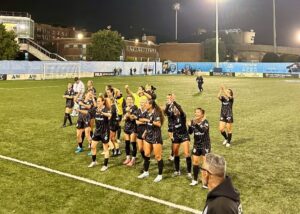By Scott Brinton
“We cannot walk alone,” Dr. Martin Luther King Jr. famously intoned in his seminal “I Have a Dream” speech, delivered on the steps to the Lincoln Memorial in Washington D.C. on Aug. 28, 1963. “And as we walk, we must make the pledge that we shall always march ahead.”
It seemed only fitting then that a Village of Hempstead-Hofstra University celebration of King’s life and legacy on Monday, Dr. Martin Luther King Jr. Day, opened with a spirited march through the 31-degree weather on Hempstead Turnpike in Hempstead.
Dozens of students from the nearby Academy Charter School and Aviation High School in Long Island City filled the parade’s ranks.
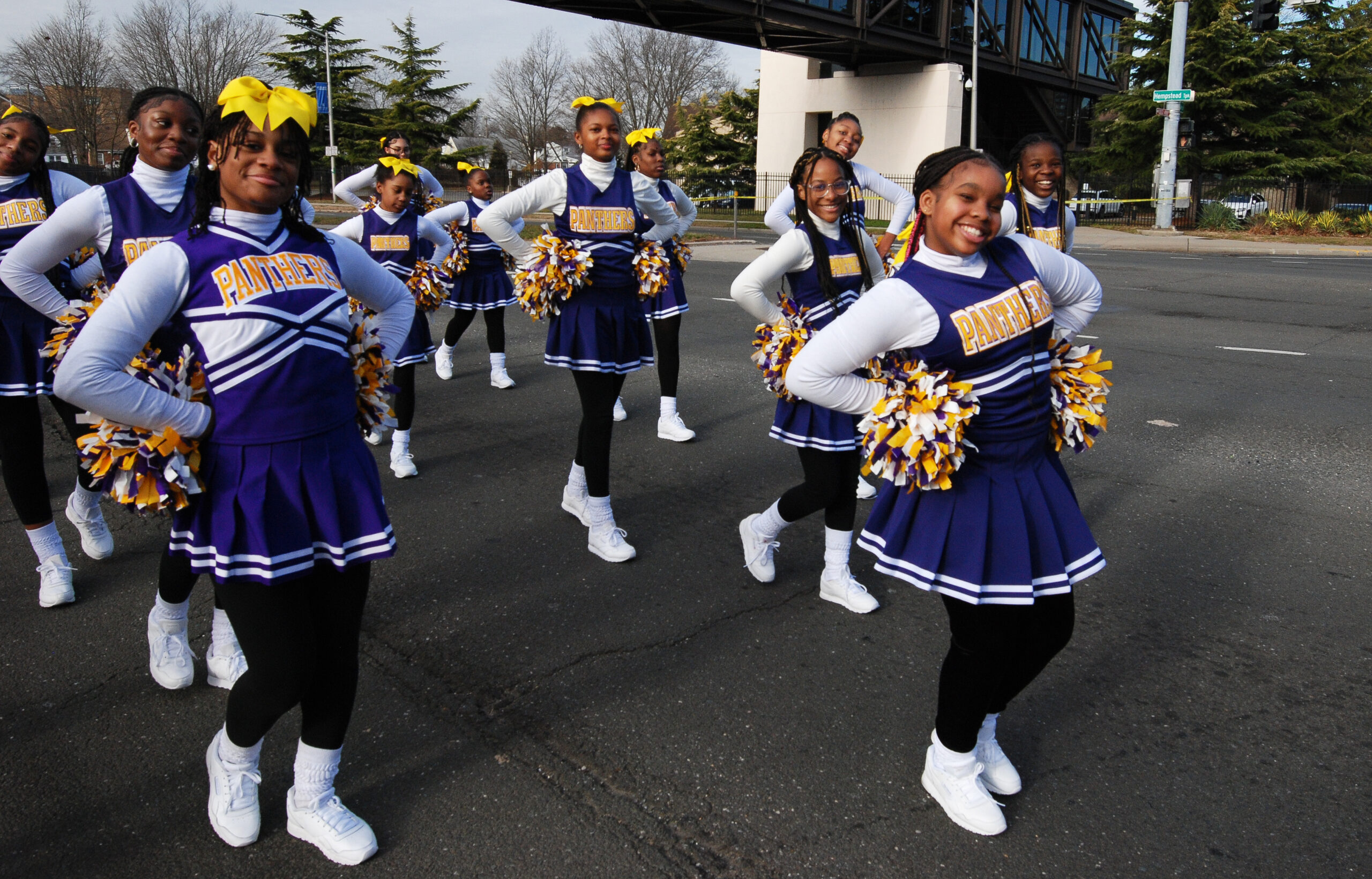
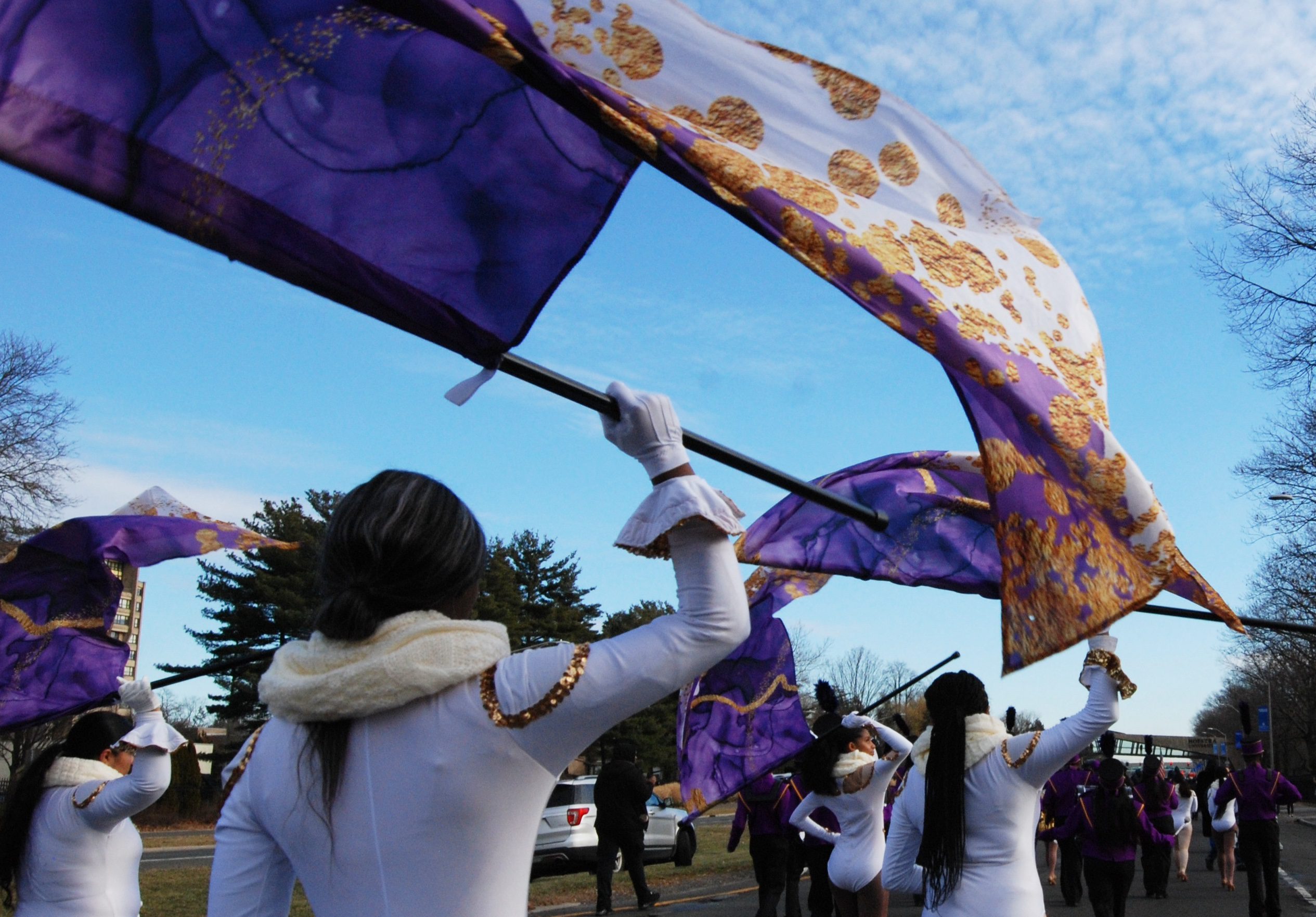
The procession, led by Hempstead Mayor Waylyn Hobbs Jr., began at Hempstead Village Hall and headed a mile and a half east to Hofstra’s Mack Student Center, where more than 200 had assembled to greet the marchers.

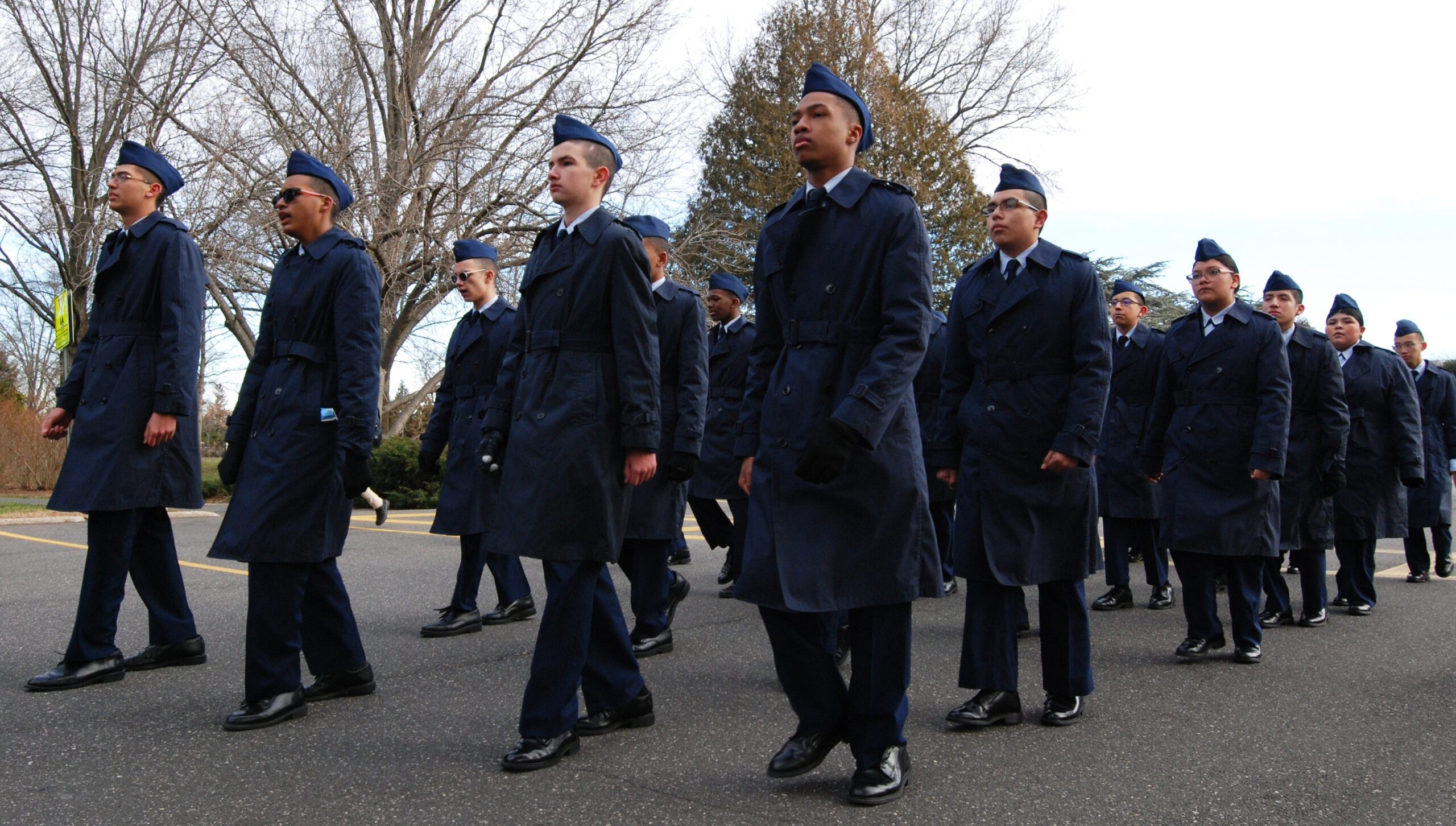
“Welcome, welcome, welcome, we are so glad to be able to stand here,” the event’s keynote speaker, the Rev. Curtis Brown, pastor of the Rising Star Baptist Church in Jamaica, Queens, told the crowd.
In an emotional, 20-minute speech that can only be described as spiritual, Brown spoke consistently of the need for unity, noting more than once, “Together, we win.”
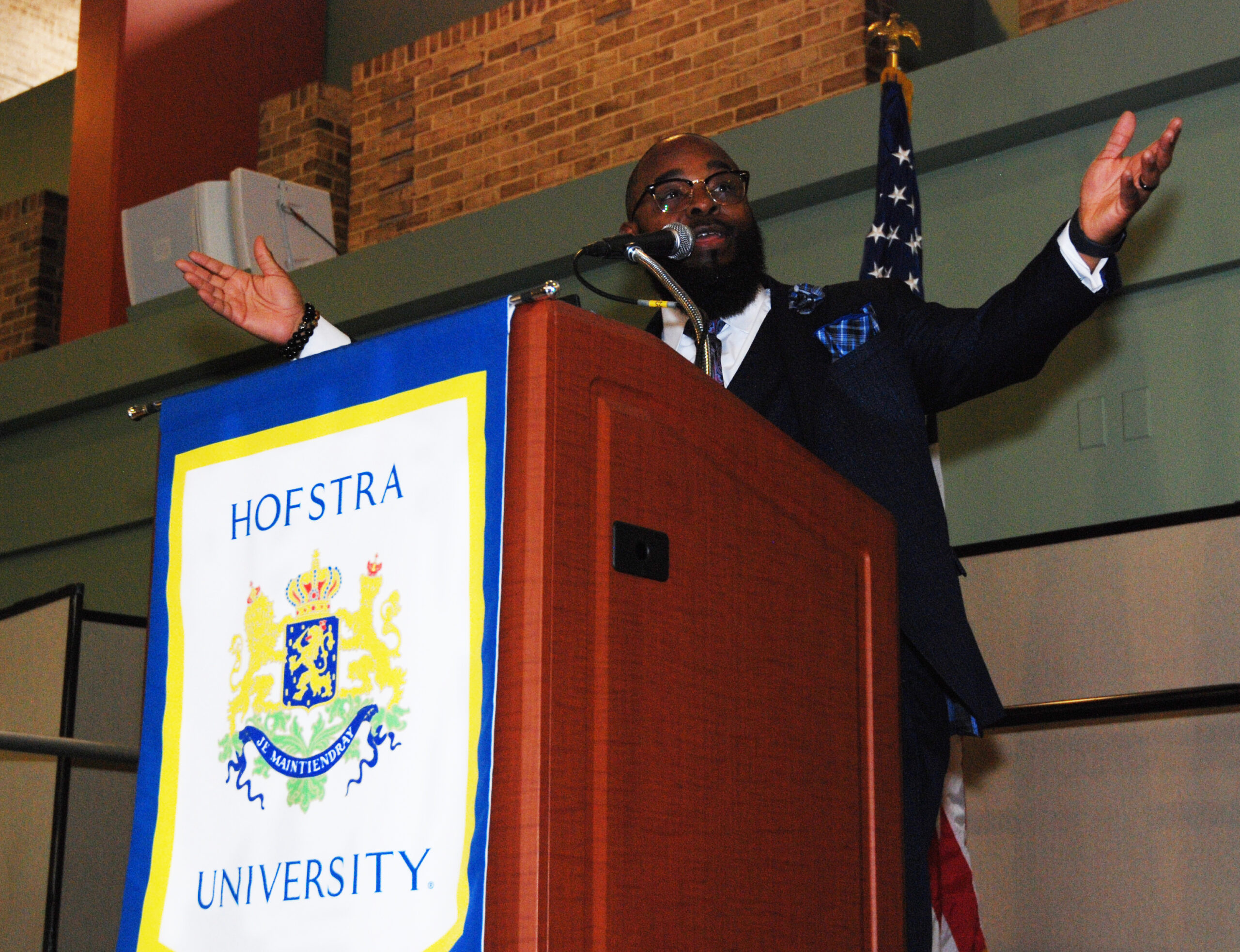
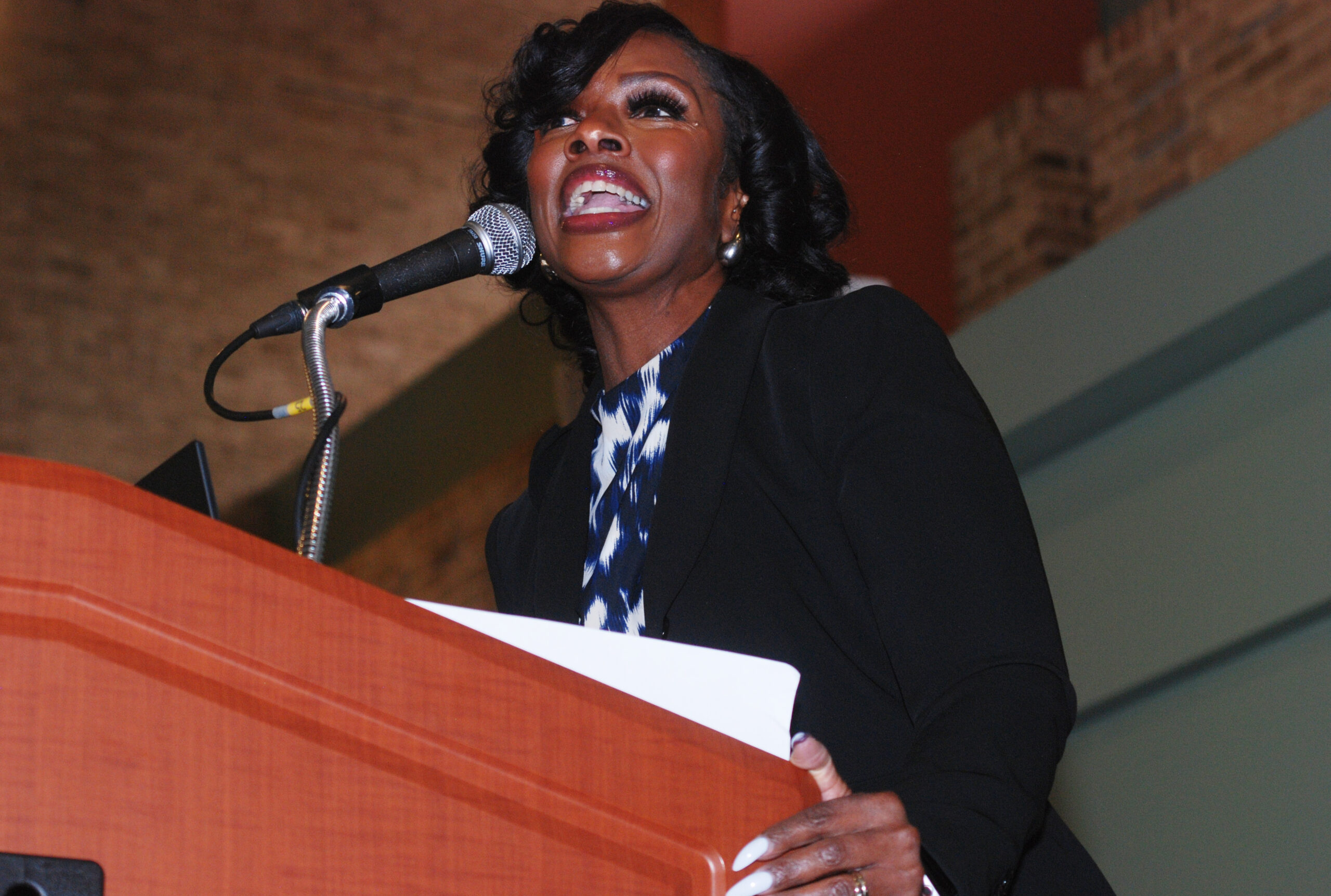
“You can’t have a successful and thriving marriage if both spouses are doing their own thing,” said Brown, a native of Freeport who until recently had served as assistant to the bishop of the Free Will Baptist Church in his hometown. “You must come together as one.
“Alone, we can do so little,” Brown said, “but together we can do so much.”
There are always dark forces, however, looking to tear people apart, to sow division where there is unity, he warned, saying, “A divisive spirit is only a trick of the enemy with the purpose to kill, steal and destroy.
“We must work together so we can all win…” he said. “There must be no division among us.”
Unity was no doubt the theme of the day when King delivered his “I Have a Dream” speech, which Hofstra President Susan Poser said she was there for — in a way.
Poser’s mother and father, who were both involved in the Civil Rights Movement, were living in the nation’s capital at the time and attended the March on Washington for Jobs and Freedom. Poser’s mother was eight and a half months pregnant at the time — with Poser.
The march crowd swelled to 200,000 that 83-degree August day. Poser’s father, who is now 95, remarked in his journal at the time that the crowd was “wonderfully impressive,” with “groups from all over singing songs.”
“There was no kind of order in the march, but no disorder either,” he wrote.
Many of the Poser family’s White neighbors had stayed home and locked their doors for fear of violence. The march remained peaceful and orderly, however.
No doubt, President Poser said, that fear “was born out of prejudice” — a prejudice that remains today in many ways, a little over 60 years later.
“Surely there has not been the extent of the kind of progress one would have hoped for or believed in after hearing King’s speech that day,” she said.
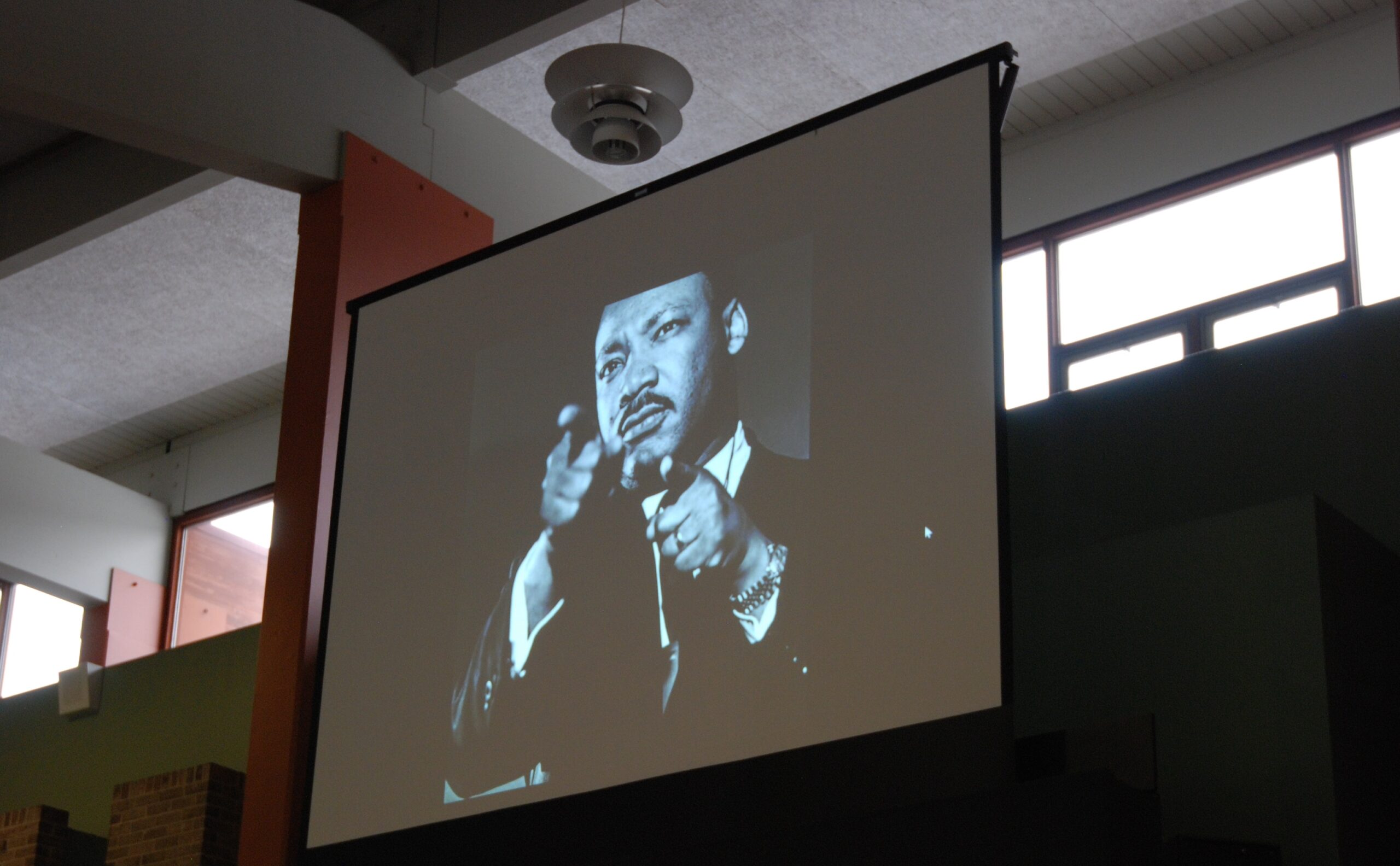
Later, Cornell Craig, Hofstra’s vice president for equity and inclusion, introduced a panel discussion on how the U.S. might reach a point of reconciliation after Black people and other people of color have been oppressed for more than four centuries.
Craig noted how revolutionary King was as leader of the Civil Rights Movement. “Too often when the 20thcentury Civil Rights Movement and Dr. King are referenced, the image and the ideas are reduced to a movement of peace and the dream,” Craig said.
“What is often overlooked is how radical and disruptive the Civil Rights Movement was to American society and white supremacy,” he said.
King was about peace and love, yes, but he was also about equity and justice, broaching subjects ranging from poverty to the Vietnam War.
“What is often overlooked is how radical and disruptive the Civil Rights Movement was to American society and white supremacy.”
Cornell Craig, Hofstra University Vice President for Equity and Inclusion
Leading the seven panelists in the discussion was Dr. Aisha Wilson-Carter, Hofstra’s associate director of equity and inclusion. Much work remains to be done to make America an equitable and just nation, panelists agreed.
Last June, the U.S. Supreme Court ruled against “race-conscious admission programs” at colleges and universities across the country, which panelist Tayna Martinez-Gallinucci said effectively “stripped” away affirmative action “for the entire country.”
Martinez-Gallinucci, who is executive director of the Office for Diversity, Equity, Inclusion and Belonging at the New York City Bar Association, called the city’s public schools “the most segregated in this country,” despite the city being the nation’s most diverse metropolis.
“Make that make sense,” she said.
Referring to people of color, Martinez-Gallinucci said, “We are people who were stolen. We are people who survived people stealing their land. We are people who have never known safety. We have never known what it is to be here and to be accepted, to be a full-fledged citizen of this country.
“We will have to make our lives, our society, a place where we can get out of survival mode,” she concluded.
